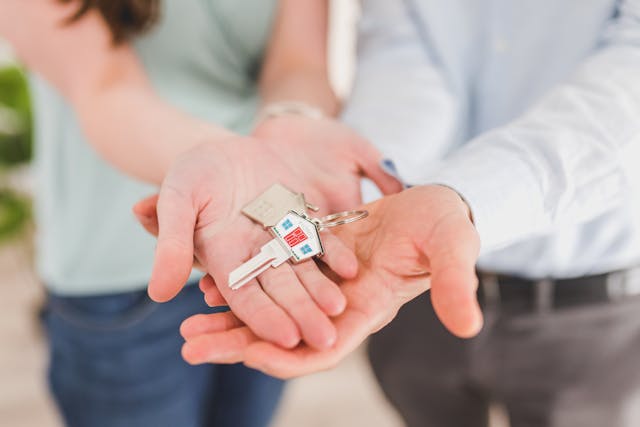Write Us: hello@ali5.org
The Emotional Cost of Debt and How to Finally Break Free
Debt affects more than your wallet, it impacts your mental health too. Learn how to manage financial stress, regain control, and find emotional freedom from debt.

Debt is often described in terms of balances, interest rates, and weekly payments. However, people rarely talk about the mental toll gambling takes.
Debt affects more than just your bank account. It’s bad for your mental health, sleep, confidence, and even the people you care about. Many people who are in debt feel as though they are under constant pressure to pay off their debt.
You’re not alone, though, and you can get out of this. The first step to obtaining both financial and mental freedom is realizing how debt impacts you.
1. The Hidden Emotional Cost of Debt
Your life and thoughts are gradually taken over by debt; it doesn’t knock loudly. Avoiding checking your bank account, feeling bad about making a small purchase, or not calling someone because you don’t want to find out about a new payment are examples of modest manifestations.
The main emotional difficulties connected to debt are as follows:
a. Ongoing anxiety and concern
People who are in debt often describe feeling uneasy all the time, that something is never quite right, even when things are peaceful. That is money-related anxiety.
As a result, you can be nervous anytime you receive an email from your bank, check the due dates frequently, or even lose sleep wondering about how you’re going to pay the next bill. Because of this stress, you could experience burnout, headaches, and fatigue.
b. Shame and Guilt
Negativity is closely linked to debt. The fact that debt is often seen as a sign of carelessness is unfair. Life goes on. Debt can arise from unforeseen costs, medical bills, losing your job, or even from trying to better your future.
But instead of seeing that debt is often a societal issue, many people internalize this humiliation and blame themselves. You might be unable to ask for help or even be honest with yourself about your situation because of this guilt.
c. Stress in Relationships
Money is a major source of friction in relationships. When the debt becomes too much to bear, communication may become strained. While one spouse controls spending excessively, the other spouse hides spending.
Even friendships may suffer if you start to avoid social situations due to financial embarrassment. Recovery is hampered by the sense of loneliness that debt fosters.
d. Lack of Self-Respect
Over time, debt can undermine your sense of self-worth. You start to believe that you’re “bad with money” or that you’ll never make it. This kind of thinking traps you in a vicious cycle where the more hopeless you feel, the less motivated you are to change.
2. Comprehending Debt Psychology
- You must comprehend why debt is so emotionally draining if you want to actually pay it off. The loss of control is more important than just the money.
- Your sense of security suffers when you have debt. Because some of your future income has already been guaranteed, you feel helpless. Having to budget, save, or spend money without feeling guilty can be a huge psychological load.
- Mental accounting, a phrase used by psychologists to explain how our brains handle money differently depending on where it comes from or goes, is another element that contributes to the overwhelming feeling of debt. For example, you may feel comfortable spending money you recently received because it feels like a “fresh start,” even if you still owe money.
Knowing these emotional pitfalls will help you handle your money more wisely and guilt-free.
3. Breaking Free: Before Financial Recovery, Emotional Healing
Before you can create budgets and payment plans, you must first heal emotionally. Although financial management makes sense, changing one’s perspective is the first step towards debt alleviation.
Here’s where to begin:
a. Please excuse yourself
Your identity is not defined by your debt. Give up self-blame and guilt. Making decisions based on what you know at the moment is okay. What matters now is that you are deciding to face it.
b. Talk About It
Debt feels heavier when there is silence. Consult a trustworthy individual, such as a financial advisor, acquaintance, or family member. By discussing your situation, you might be able to shed your shame and discover answers you might not have otherwise thought of.
c. Keep your identity and money apart.
You are not defined by your credit score. You are not defined by the amount of your debt. You are an individual who is growing, learning, and improving. The more you absorb this, the easier it is to restore control.
4. Practical Methods for Debt Reduction
Now that your perspective is shifting, you must take deliberate steps to regain control. Here’s how to start the process of moving from financial confusion to emotional overload.
Step 1: Analyze the Information
The hardest and most liberating thing is this. Put all of your commitments, interest rates, and required minimum payments in writing. It may feel scary at first, but remember that you cannot heal what you cannot confront.
If you look at the larger picture, it’s not as unmanageable as your fear made it seem.
Step 2: Decide on a Repayment Plan
There are two popular methods for debt repayment:
The Snowball Method: Focus on paying off your lesser debts first and make the bare minimum payments on your remaining expenses. Every small bit of success boosts your motivation.
The Avalanche Method: Focus on the debts with the highest interest rates first. You end up saving more money in the long term.
Both work well; choose the one that keeps you emotionally motivated.
Step 3: Create a Simple, Workable Budget
The key to an effective budget is direction, not constraint. Make a list of your needs, track your income, and cut back on unnecessary spending. Just don’t go too far, though. If your strategy seems too strict, you won’t stick to it.
The aim of budgeting is balance, not deprivation.
Step 4: Automate and Simplify
Configure automated payments to guarantee that you never miss a deadline. Simplify your accounts if you can; fewer expenses translate into less worry. Additionally, try to move your debt to a balance transfer card or a loan with a reduced interest rate.
Step 5: Establish a Small Emergency Fund
Ironically, the greatest way to pay off debt faster is to start with a tiny amount of savings. Even a little emergency fund (₨10,000 to ₨20,000) can prevent you from using credit again when unanticipated costs occur.
Step 6: Assess Individual Accountability
Making progress is simpler when you have support from others. When things get tough, accountability, whether from a friend, a financial support group, or an online community, keeps you going.
5. Transitioning to Stability from Survival
Once momentum has been established, focus on the future. One component of debt relief is paying off your debt; another is developing new habits that will prevent you from accruing debt in the future.
That looks like this:
- Make sure you regularly monitor your spending.
- Delay making rash purchases for the entire day.
- Set financial goals that you are excited about, like investing, vacationing, or going to school.
- Recognize achievements, no matter how small.
By forming good financial habits that serve as emotional armor, you can protect yourself from the suffering that debt once caused.
6. The Anticipated Emotional Freedom
Imagine ending the night without having to worry about money. Guilt is removed when you buy something you like.
- No more worrying about bank calls.
- When you are financially free, you feel calm, confident, and in charge.
- But most individuals don’t realize that emotional freedom often comes before financial independence. The moment you stop letting debt define your worth, you’ve already started to break free.
When you see debt as a challenge rather than a shameful secret, it has less of an impact on you. Month by month, you will progressively improve both your financial status and your sense of self.
Final thoughts
Debt does not make you a failure; rather, it makes you human. Everyone’s financial path is unique, and it’s acceptable to have difficulties.
What matters are the courage to face it, the persistence to change your behavior, and the belief that things will get better because they will.
Getting out of debt is not as crucial as regaining serenity, dignity, and hope. And that kind of riches is incalculable to anyone.







